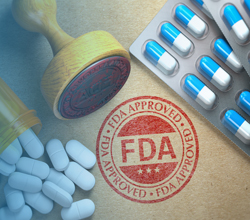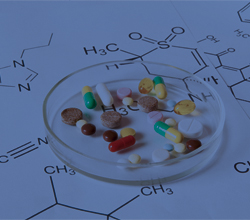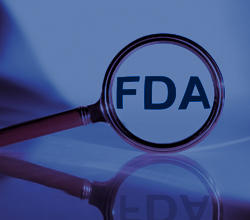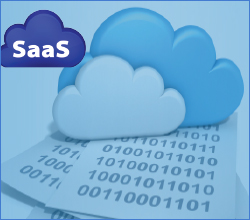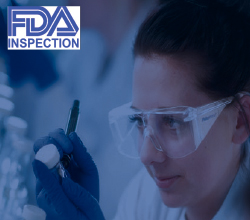
Quality Agreements and Their Role as Part of a Quality System
 Michael Ferrante
Michael Ferrante
 90 Mins
90 Mins
Product Id: 706966
This webinar will focus on the Process for Quality Agreements and requirements that must be implemented to ensure compliance with the latest quality and regulatory requirements. Attendees will learn the reason for implementing a Quality Agreement system to assure adequate controls for Service Providers.

Cash Flow 101: From Profits to Liquidity You Can Spend
 Justin Muscolino
Justin Muscolino
 60 Mins
60 Mins
Product Id: 707036
This webinar explains how cash flow really works and why profitable businesses still run out of money. It breaks down how to track, forecast, and manage cash so leaders can make confident operating and growth decisions. You’ll learn how to move from accounting profits to real, usable liquidity.

How to Prepare and Survive an EPA Audit
 Joe Keenan
Joe Keenan
 60 Mins
60 Mins
Product Id: 706857
In this training program attendees will learn the key elements needed to develop a proactive Regulatory Compliance Written Program. After this webinar, you will have confidence in facing the next EPA regulatory compliance audit that comes your way.

Excel Spreadsheets; Ensuring Data Integrity and 21 CFR Part 11 Compliance
 David Nettleton
David Nettleton
 75 Mins
75 Mins
Product Id: 701582
Learn how to use Microsoft Excel spreadsheets for GXP data to ensure compliance with 21 CFR Part 11 and reduce validation cost and time.

Computer System Validation (CSV) vs. Computer System Assurance (CSA): Aligning the Agile Methodology to the GAMP®5 "V" Model and System Development Life Cycle (SDLC) Methodology
 Carolyn Troiano
Carolyn Troiano
 120 Mins
120 Mins
Product Id: 706921
As part of the Case for Quality program US FDA Center for Devices and Radiological Health noted how an excessive focus by industry on compliance rather than quality may be diverting resources and management attention toward meeting regulatory compliance requirements vs. adopting best quality practices. There has also been a lower than anticipated investment in automation and digital technologies, which could greatly improve quality and process control. A key element is a risk-based, product quality and patient-centric approach to Computer System Assurance (CSA) vs. the traditional Computer System Validation (CSV) waterfall approach. This encourages critical thinking based on product and process knowledge and quality risk management over prescriptive documentation driven approaches.
This is where FDA determined that “WHAT” is required can be done (the “HOW”) in different ways and does not have to be according to the “checklist” mindset of most CSV work, where you create documents without specifically addressing the risk of potential failure of each requirement.
GAMP®5 supports the use of incremental, iterative, and evolutionary approaches including agile, for development of custom applications. Keys to success include a robust Quality Management System and well trained and highly disciplined teams following well-defined processes supported by tools and automation.

Risk Management of Raw Materials in a GMP Environment
 Barry A Friedman
Barry A Friedman
 90 Mins
90 Mins
Product Id: 706909
The objective of this live, interactive webinar is to explore raw materials in a cGMP environment, their various regulatory requirements and how they may affect the timeline of meeting the release date of your Company’s products. Please plan to bring additional personnel to the webinar to obtain cross-Departmental training.

NEW Reclamation Process - Fed Gov't Payments
 Donna K Olheiser
Donna K Olheiser
 90 Mins
90 Mins
Product Id: 706928
Processing ACH Reclamations from the Federal Government can be challenging! Chapter 5 of the Green Book has been updated making it mandatory for Financial Institutions to respond to all reclamations must be submitted through the Automated Reclamation Processing System (ARPS) located in Treasury’s Pay.gov web portal (except for responses by DFAS and any Treasury-approved exceptions). The Nacha Operating Rules still apply when processing these payments but the Green Book outlines exceptions when handling DNEs (Death Notification Entries) and Federal Government Reclamations. A side-by-side comparison of Commercial vs. Government Reclamations will be included to know what the difference is and how to handle each one.

Latest Changes to RoHS and REACH for 2026
 Kelly Eisenhardt
Kelly Eisenhardt
 60 Mins
60 Mins
Product Id: 706070
This 1-hour webinar will go into the specifics of the REACH and RoHS regulations and review the latest amendments and changes to both regulations for 2026. We will draw out key developments and key dates (if applicable) with particular emphasis on requirements for US firms.

EPA Tier II Reporting
 Joe Keenan
Joe Keenan
 60 Mins
60 Mins
Product Id: 705125
This training program will enumerate the requirements of the Emergency Planning and Community Right-to-Know Act (EPCRA) as it applies to your organization. It will also help attendees understand the threshold trigger for reporting a hazardous chemical on the Tier II forms and learn how to accurately calculate chemical mixtures as it applies to the Tier II forms. Further, attendees will learn to navigate the complexities of online Tier II reporting.

Troubleshooting Ethylene Oxide (EO) Processes
 Gerry O Dell
Gerry O Dell
 75 min
75 min
Product Id: 701679
Not every parameter in the EO sterilization process in critical for the determination of the product’s sterility assurance level (SAL). This presentation will outline the various parameters and what actions should be taken when they are not compliant to the process specification. These actions can be as simple as a rationale for release to as complicated as the need for the qualification of a new sterilization process. How to decide the actions to take will be addressed along with the reasons behind the decisions so that an accurate and complete justification of your decision can be made for both management and regulatory agencies. The rationales for both conventional and parametric release will be addressed.

Conducting Your 2026 Annual ACH Rules Compliance Audit - a Step-by-Step Guide
 Donna K Olheiser
Donna K Olheiser
 90 Mins
90 Mins
Product Id: 705082
The Nacha Operating Rules and Guidelines require that all participating depository financial institutions (ODFI & RDFI), Third Party Senders (TPS) and Third-Party Service Providers (TPSP) that provide ACH services to the RDFI or ODFI, conduct an annual ACH audit by December 31 of each year (Nacha Operating Rules, Article 1).

Tier II, Form R, and SPCC Reporting: Environmental Compliance Made Simple
 Joe Keenan
Joe Keenan
 90 Mins
90 Mins
Product Id: 705581
This webinar will help attendees to learn SPCC Implementation Plan Best Practices. The US EPA requires an SPCC Plan to be prepared by companies that use certain petroleum-based chemicals and Oils.

FDA's New Software Validation Requirements
 John E Lincoln
John E Lincoln
 90 Mins
90 Mins
Product Id: 706952
CGMP companies must develop / implement formal software V&V for medical product under IEC 62304 and a key US FDA Guidance Document.

Mapping and Review of Pharmaceutical Warehousing and Distribution Workflows
 Michael Esposito
Michael Esposito
 90 Mins
90 Mins
Product Id: 707026
Mapping and evaluating all the steps in a pharmaceutical warehousing and distribution workflow can lead to valuable process improvements. In this webinar, we discuss how this review can be accomplished and the possible benefits that can result.

OSHA Inspection Readiness: What to Expect and How to Prepare
 Joe Keenan
Joe Keenan
 60 Min
60 Min
Product Id: 705368
Regulatory compliance audits can be taxing and worrisome for anyone. Having an OSHA, EPA or State Department of Environmental Quality Audit can open an organization up to receiving regulatory citations, monetary fines, negative company press, etc. The purpose of this webinar is to cover the key concepts of how to successfully navigate through a OSHA Audit.

Good Documentation Practice (GDP) and FDA Validation Compliance for Regulated Computer Systems and Data
 Carolyn Troiano
Carolyn Troiano
 90 Mins
90 Mins
Product Id: 706925
Computer system validation has been regulated by FDA for more than 30 years, as it relates to systems used in the manufacturing, testing and distribution of a product in the pharmaceutical, biotechnology, medical device or other FDA-regulated industries. The FDA requirements ensure thorough planning, implementation, integration, testing and management of computer systems used to collect, analyze and/or report data. Electronic records and electronic signatures (ER/ES) came into play through guidelines established by FDA in 1997, and disseminated through 21 CFR Part 11. This code describes the basic requirements for validating and documenting ER/ES capability in systems used in an FDA-regulated environment.

Analytical Method Validation and Transfer
 Kelly Thomas
Kelly Thomas
 90 Mins
90 Mins
Product Id: 706186
This course will provide a thorough review of regulatory guidelines on method validation and transfer. It provides guidance on how to perform QC analytical test method validations and transfers.

Conducting Effective Quality Audits: Beyond Audit Checklists
 Michael Ferrante
Michael Ferrante
 60 Mins
60 Mins
Product Id: 703539
This webinar will teach attendees best practices for conducting effective quality audits to ensure regulatory compliance. Learn how to avoid potential pitfalls during the audit process.

NEW Nacha Operating Rules Changes for 2024, 2025 & 2026 PLUS Ops Bulletin #1-2025
 Donna K Olheiser
Donna K Olheiser
 90 Mins
90 Mins
Product Id: 707025
Effective Oct 1, 2024 – Amendments to the Rules included Risk Management Topics, such as "Expanded use of Return Reason Code R17"; "funds availability exceptions" and "Unauthorized Return changes for the RDFI with timing of the WSUD and returning unauthorized transactions".
Effective April 1, 2025 – An Amendment carried over from 2024 includes the "Expanded use of Return Reason Code R06"
Effective March 20, 2026, two Rule amendments (Fraud Monitoring – Phase 1) – monitoring for Faud (as part of a larger Risk Management package) intended to reduce the incidence of successful fraud attempts and improve the recovery of funds after frauds have occurred.
Plus, two additional Rule amendments on standardizing Company Entry Descriptions (also part of Risk Management-relating to Fraud) become effective on March 20, 2026.

Managing Microbiological Out of Specification (OOS) and Out of Trend (OOT) Results in Sterile and Non-Sterile Production FDA & ICH Expectations and Guidance
 Barry A Friedman
Barry A Friedman
 90 Mins
90 Mins
Product Id: 706884
The objective of this interactive, live training webinar is to explore the management of OOS practices and suggested avenues to take to minimize deviations, OOT, OOS and CAPA and how to attack these situations should they occur. It is also designed to determine how FDA and ICH regulations and guidances may impact them. It will also reference the new PDA TR 88, “Microbial Data Deviation Investigations in the Pharmaceutical Industry”.

